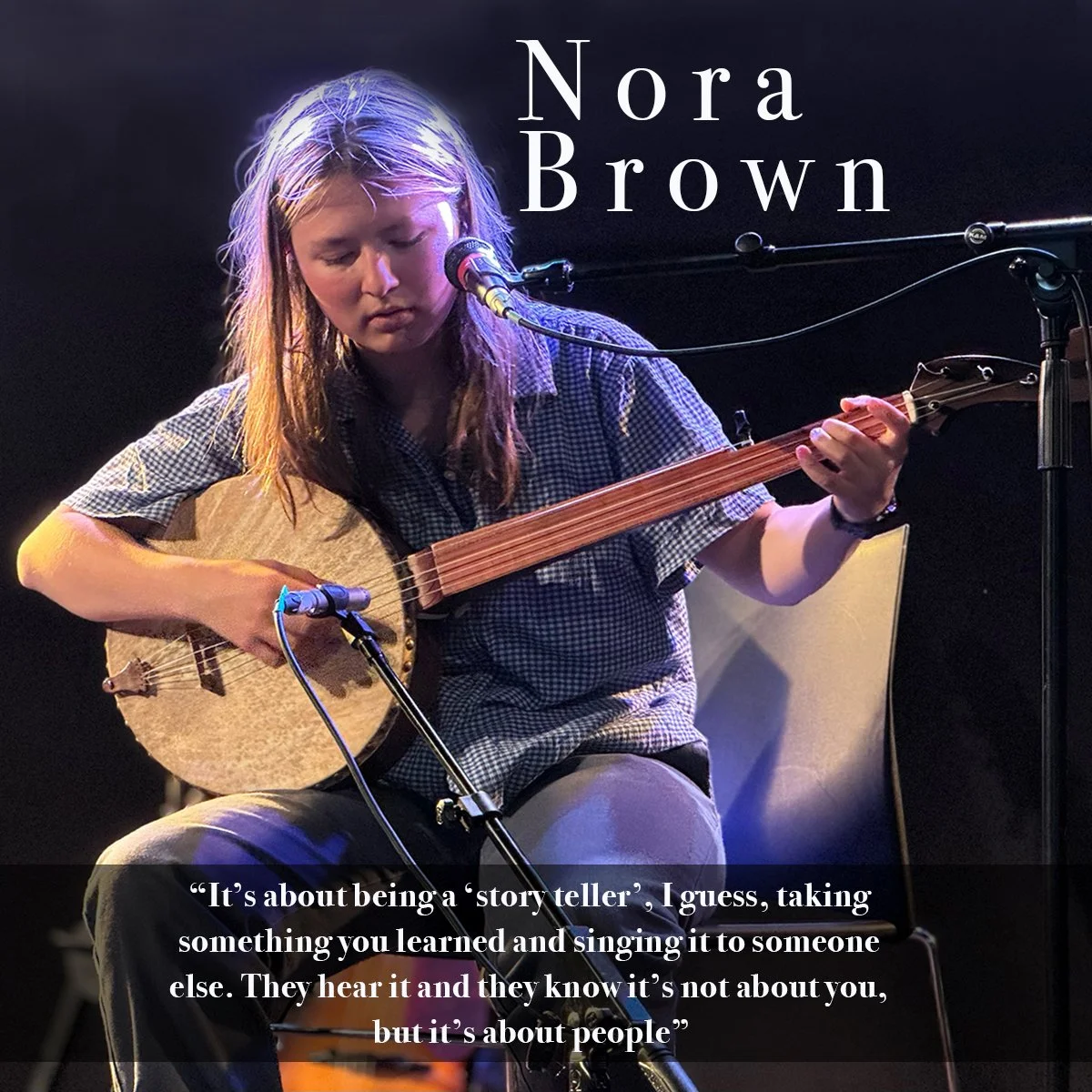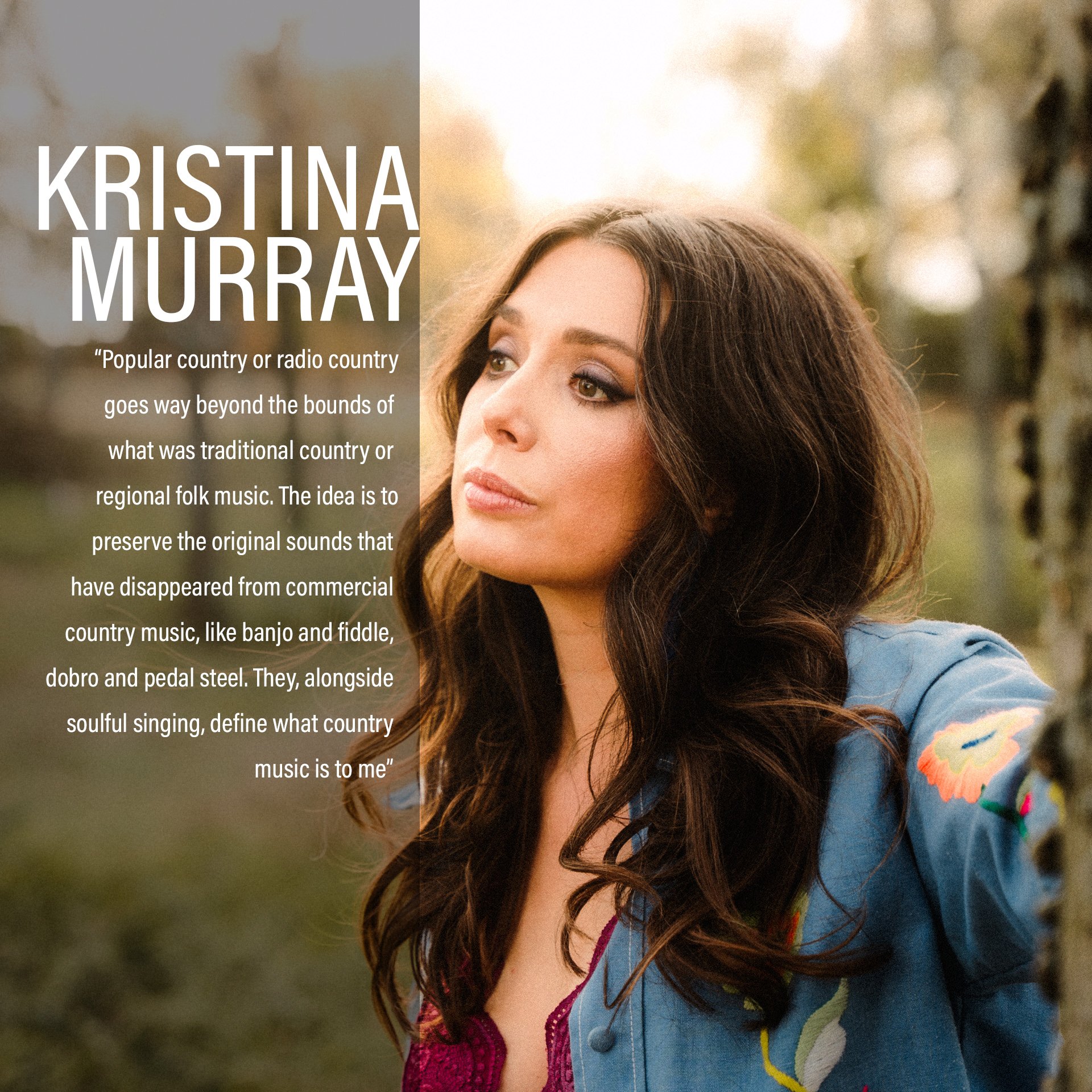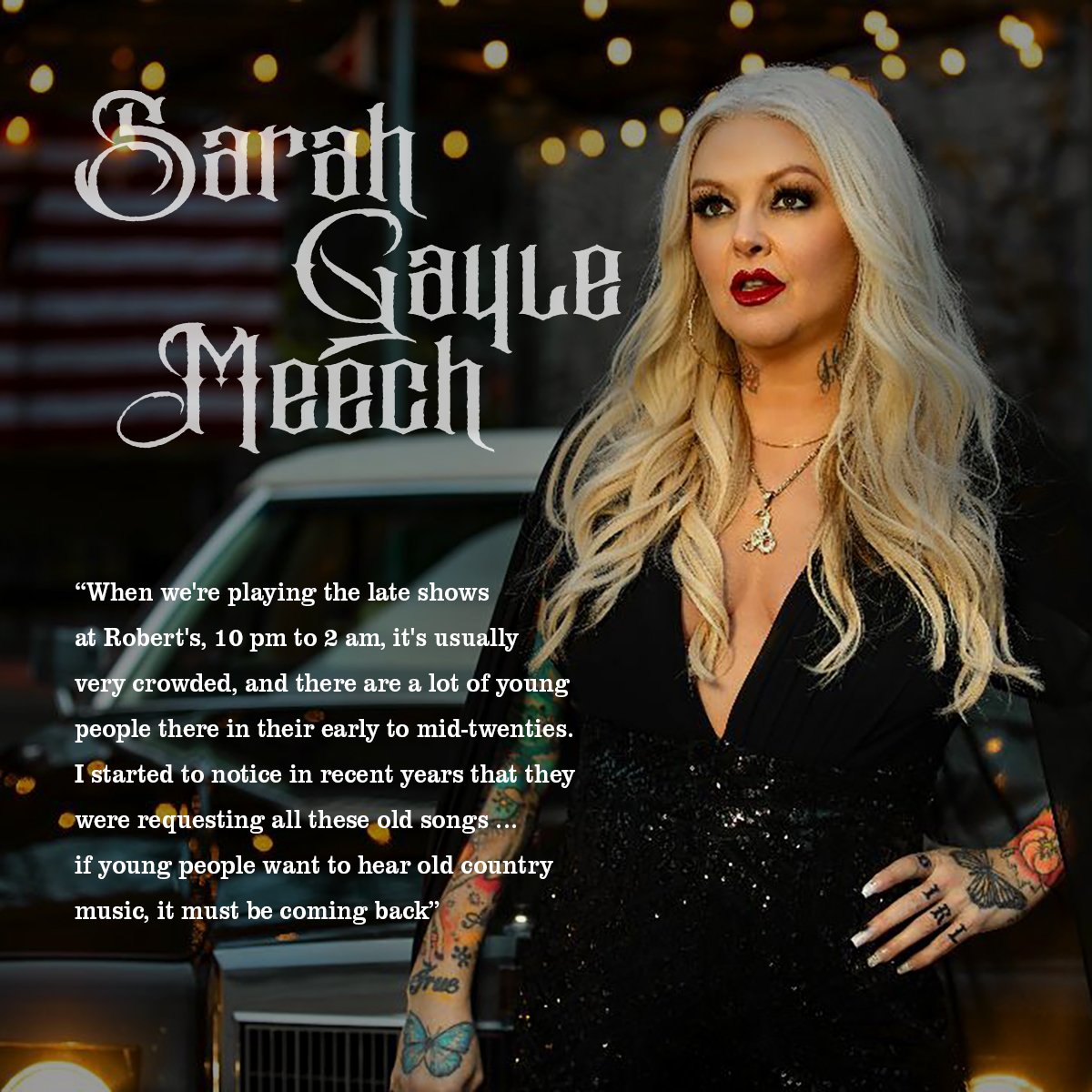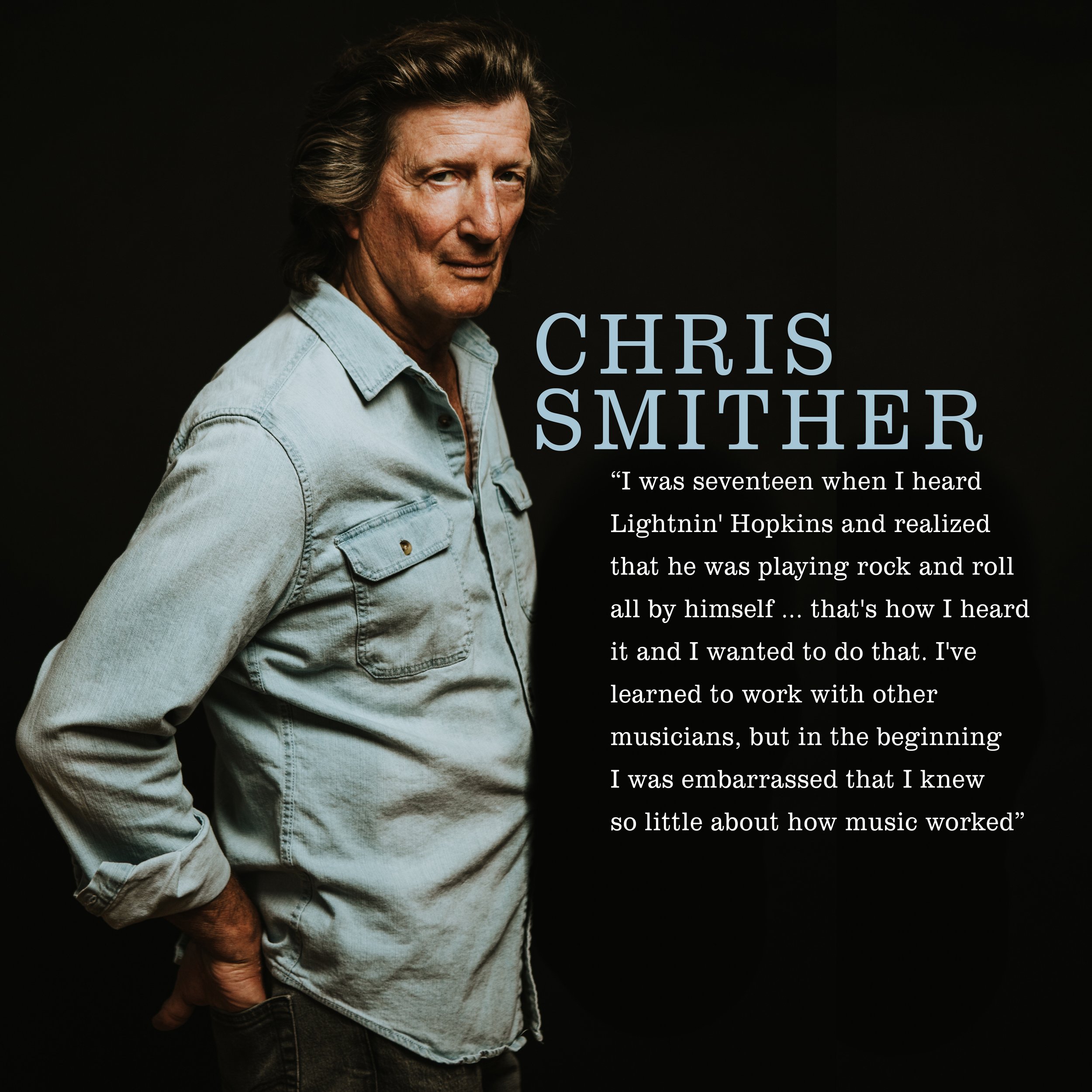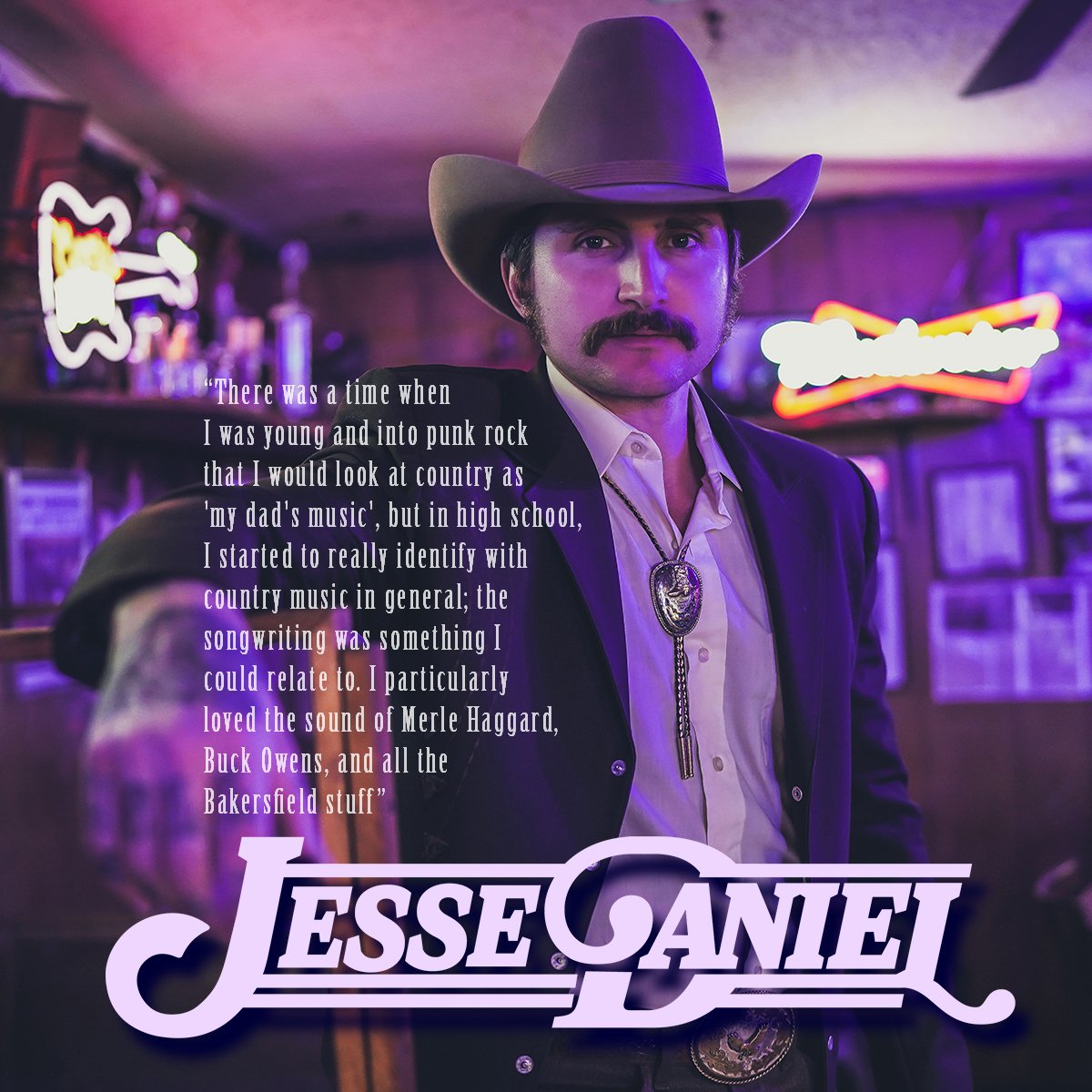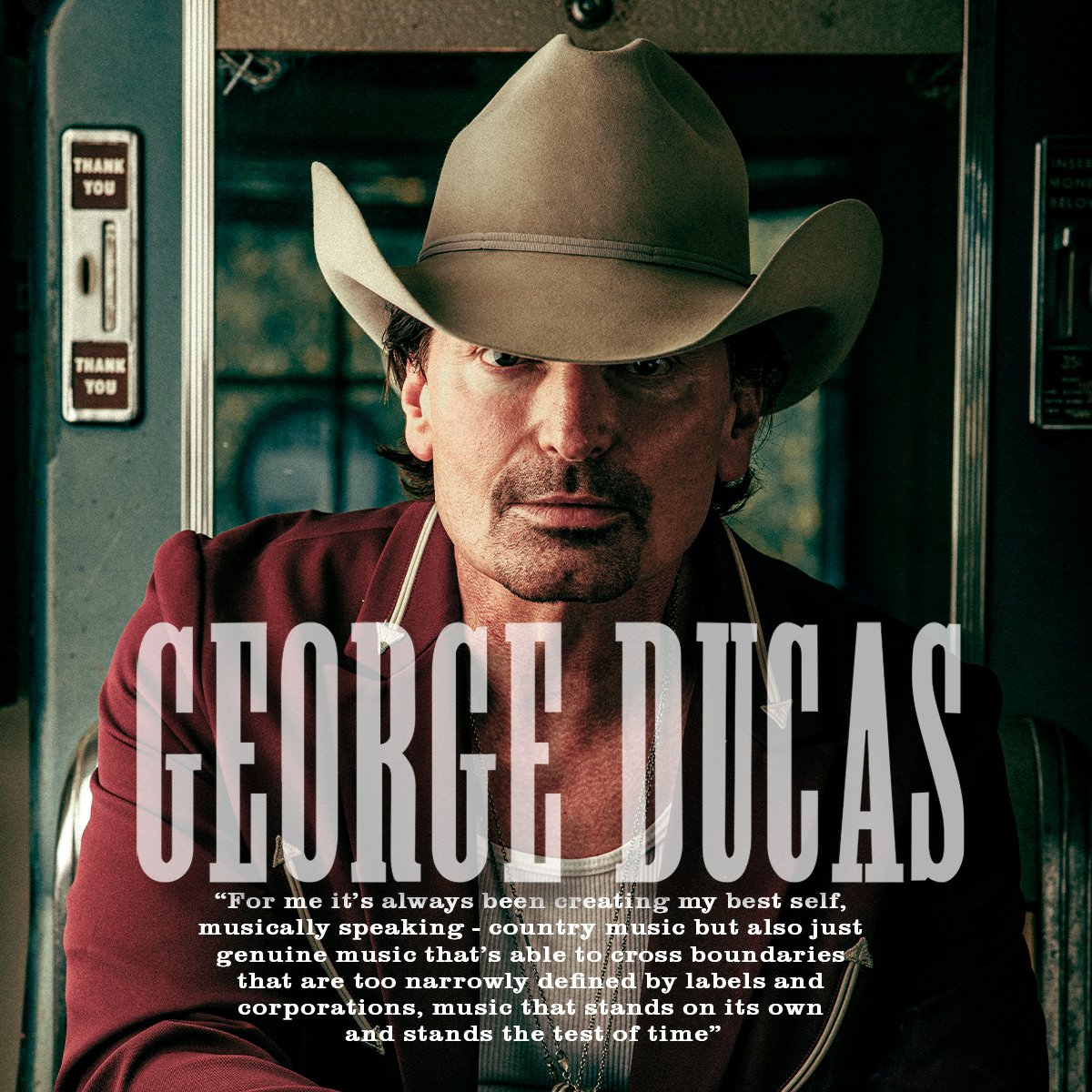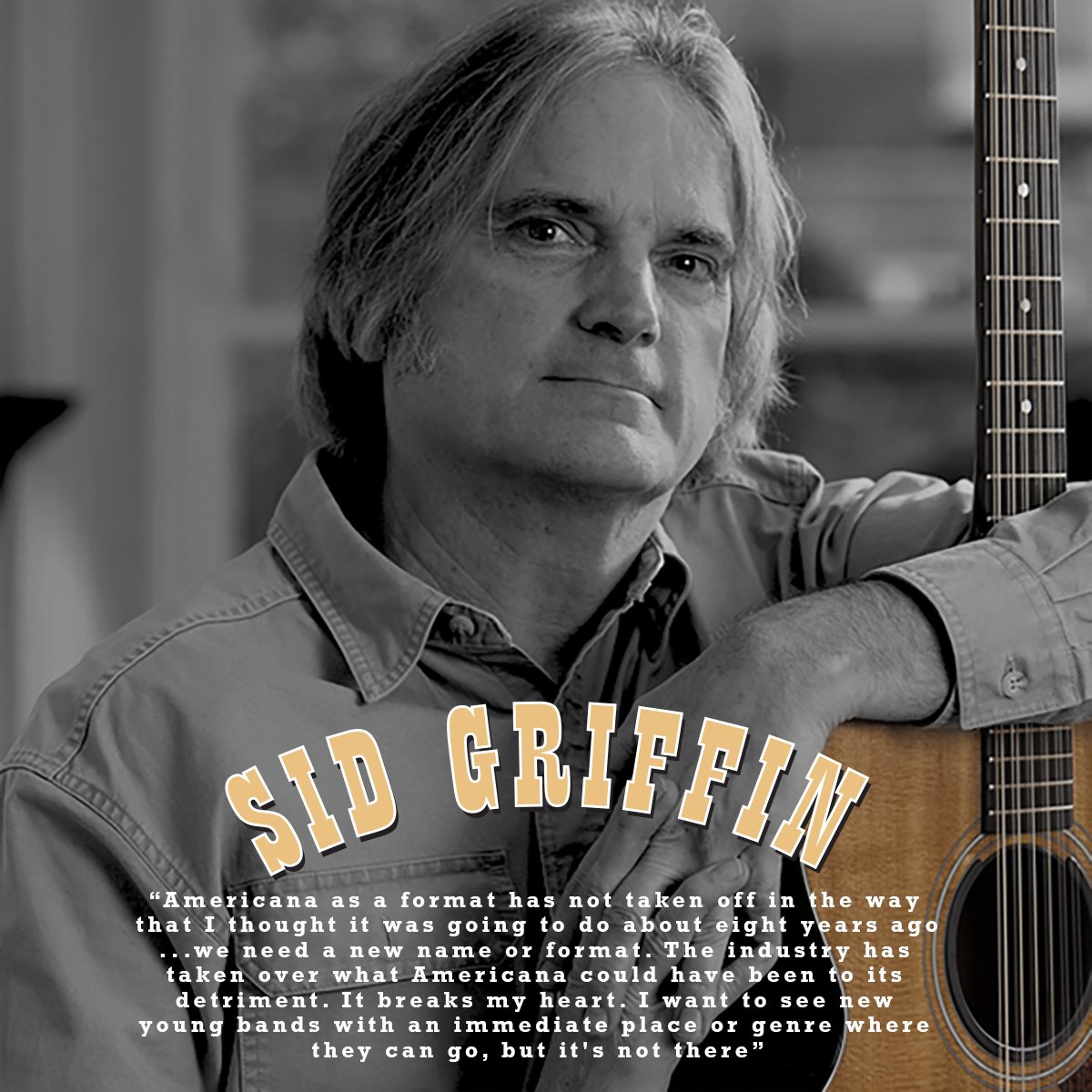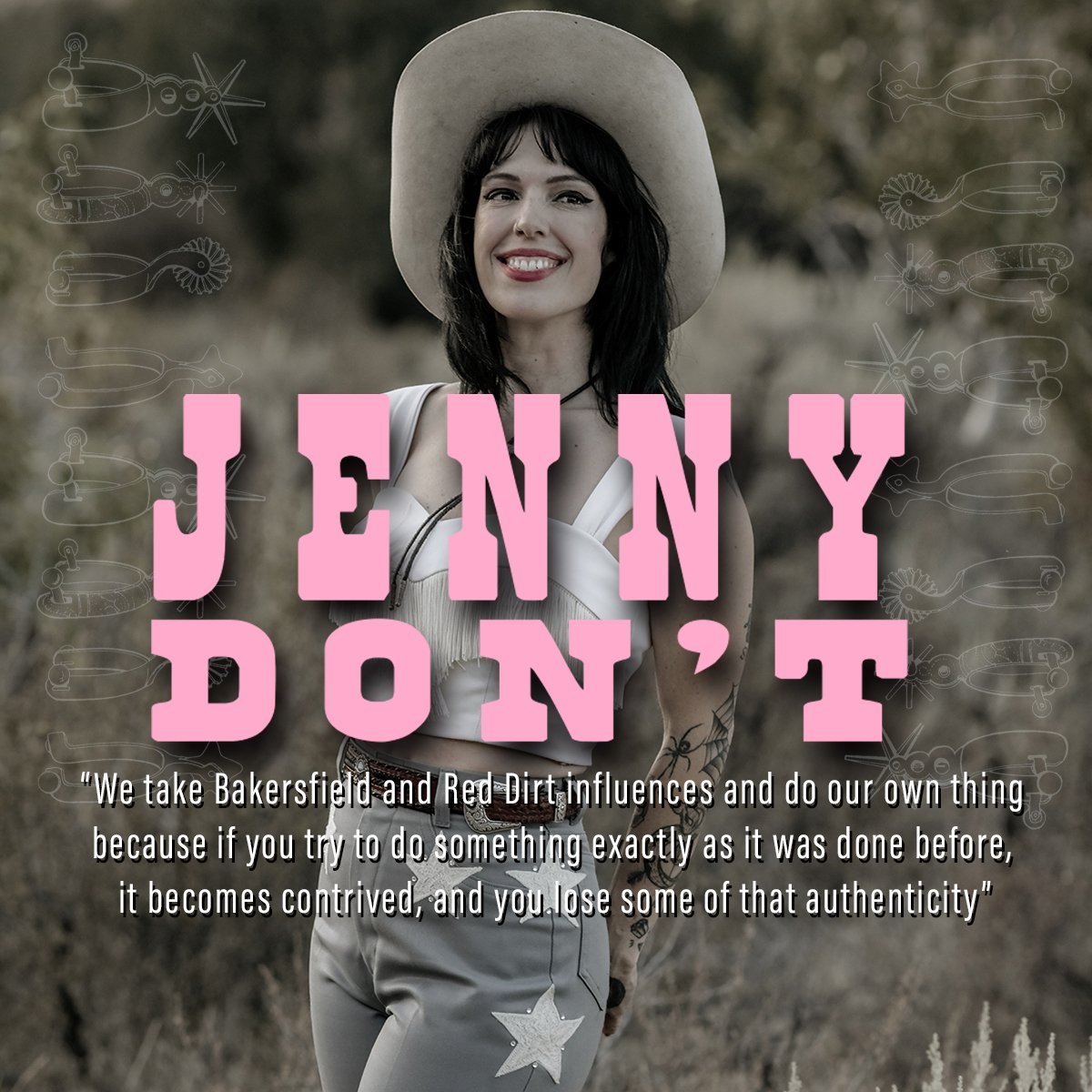Ordinary Elephant is the performing name of husband and wife duo Pete Damone and Crystal Hariu-Damone. They have been active on the music circuit since their formation back in 2013 and their albums bear testament to their growing reputation that has drawn much praise. In 2017, they were honoured with the International Folk Music Award for Artist of the Year for their album, BEFORE I GO. The duo create insightful songs and beautifully honed harmony vocals. Their sound is coloured around Folk/Roots influences and the pair have been praised for the authenticity and honesty in their performance. Their superb songs are reflections on life, love and the vagaries of human nature, in addition to celebrating the gifts of mother earth and nature. They spent five years on the road in a RV, continuously travelling across the United States, building a fan-base and experiencing life in a unique way. Now settled down in Louisiana and with the challenges of Covid lockdown behind them, Lonesome Highway wanted to catch up with Crystal and Peter and enquire into new album and their future plans.
Congratulations on the launch of the new album. Have you been pleased with the response from the media so far?
(Pete and Crystal) Yes, although it can be hard to gauge how much any one thing moves the needle. But then there are people that you meet at the shows who say they saw the album review somewhere, and that's what got them to the show. And that's really the ultimate goal: to connect with people directly; so that feels like a success. It’s really encouraging to have journalists who listen to a lot of music, and have well informed opinions, say kind things about your work. We certainly are very thankful for the reviews that we have received so far.
Why did you decide to name this album eponymously? It would normally happen on a debut but on your fourth release I wondered what led to the naming decision?
(Crystal) It took us a while to decide that. We were circling around some things, but nothing was feeling quite right. Then that idea came to us since it's just us on the album, and was recorded with us performing the way we do live. Self-titling felt like the most sure-footed move since this album so accurately captured what we were at that moment in time.
The previous album, HONEST (2019) used stellar musicians like Will Kimbrough and Neilson Hubbard, who also produced the album. Post-Covid did it just feel right to get back to the source of your song writing and play as a duo?
(Pete) We worked with Dirk Powell to produce the new album. We just assumed that he would bring his instrumental talents to the songs since he is such a legendary fiddle and banjo player. After laying down our tracks, and some initial mixing, he said that while he certainly could add things, he didn’t feel like he needed to. We were a little scared at first honestly, but to have someone like that endorse the songs as they were, said a lot, and was really special.
How did you come across Dirk Powell in the first place?
(Crystal) It was at AmericanaFest in 2019 in Nashville actually. We had performed at the Station Inn, and after the show he said how much he enjoyed our set. I was waiting in line for water and didn’t think that he was talking to me. Later on as we left the gig, Dirk was playing fiddle outside with Rhiannon Giddens, and we stopped to listen. After they finished the song they were playing he saw us and said again, “hey, that was a really beautiful set,” making clear he was actually talking to us. We thanked him, and then emailed him once we got back home to say how much we appreciated him listening to our set, and taking the time to share that with us. He responded and offered to show us his studio which is in Breaux Bridge, just a 40-minute drive away, which we visited in early 2020. So that started the connection that later led to recording with him.
How does it feel now to put your roots down after so many years of travelling the USA?
(Crystal) It was the end of 2019 when we bought this place, after 5 years of living on the road full-time. We were changing the way we were travelling, wanting to put down some roots and have a consistent place to come back between touring…which of course abruptly ended very shortly after that. But we felt very fortunate to have a place to be during Covid. Especially since my parents were just 30 minutes down the road, and so we were able to be with them during that time. At the end of 2021 we started picking up again on touring, moving to what we were aiming for back in 2019. It feels good to have a rooted place to keep returning to.
What do you miss when you look back at all those years of travelling constantly on the road using camper vans as your home?
(Pete) We have gone through a few different road situations. When we started it was so much different, as we weren’t doing music as a full-time thing. Travelling was more of a lifestyle choice. We could play concerts around the country at our own pace, while I was still working 40-hour weeks remotely as a computer programmer. That gave Crystal time to delve back into songwriting.
(Crystal) Yeah, I have always been a writer since I was a kid. That was my way to get things out. At the end of high school it turned into writing songs, which I continued doing during college. After graduating, I moved on to a lot more schooling for something totally unrelated to writing or music, which did not allow me much time to spend on the creative side of things. So backing away from that part of my life when we started traveling allowed me to revisit my creativity, and realize that maybe it's what I was really supposed to be doing.
Did you get to visit every State during your regular travels?
(Pete) We just checked off two more this last year, Delaware and North Dakota. We are missing only South Dakota and Hawaii.
Did you notice a perceptible change with political divisions in city and rural areas of America as you travelled around?
(Pete and Crystal) I feel like it’s hard because it’s been almost 10 years since we took off, and in 2014, that was starting to come to a boil. I think that it’s gotten worse since then. Being who we are, I don’t think that we get any crazy sideways looks. Everyone is super friendly to us, and being in the folk world, our lens is also skewed. We are not doing bar gigs and things like that anymore, so people are coming to see us with intention, and many of them tend to have a similar mindset as ours. There are probably pockets of people who are outside of that bubble, and we may not realize that they come to our shows since we are not overtly political. There are definitely things that you could say that would rile people up, but if you can say it in a different way, then maybe it doesn’t trigger that reaction from them, and there's a better chance of them being open to hearing you. We do try to be conscious of that. There are certain songs and certain things that we touch upon that we could introduce in a way that would close people off, but we try to not have that happen. We want people to be open to listening to our music, to let it in, and if people change the way they’re thinking, it's on their own accord. Which, to us, feels like a more resilient change.
Has your writing process changed much over the years?
(Crystal) Just doing it more consistently, finding our writing voices, and being inspired by different things that we come across. In the beginning, Pete wasn’t really a lyrics listener even, but we've been doing these writing exercises every morning for several years now, and it has been really wonderful to see him grow over time to appreciate lyrics, and then start writing them himself.
(Pete) I grew up in Austin and listened to bands in the Seattle grunge scene, angsty and cryptic, but The Beatles were my first musical love. Their experimentation, their harmonies and melody in their music is just incredible. Then the appreciation of the Texas songwriters came along, with writers like Guy Clark and Townes Van Zandt. The simplicity in their songs was so accessible to me and allowed me to focus on their lyrical brilliance. It just blew me away. That was the first time that lyrics made me feel in the way that melody and harmony had before. That started maybe 15 years ago.
Crystal, you were really into poetry, and I know that you both met at an open mic night. How did that come about?
(Crystal) I didn’t get a guitar until after I had graduated high school and I didn’t get on a stage until 2008, the year before Pete and I met. After high school I decided I wanted my poems to be songs and got a guitar to be a vehicle for songwriting. Ten years later, in 2008, I was living in Florida and found an open mic night there. I knew I'd only be living there for a short time, so I promised myself that I would play that open mic before I left. It was terrifying, but something about it made me want to keep doing it. When I moved to Texas, I found another one there, and we both happened to go to that open mic for the first time on the same night.
Now that Crystal is back home in Louisiana, has there been many childhood memories showing up and influencing the songs that were written for this new album?
It’s been great being near my family again, and being able to see them so often. The combination of being near where I grew up, and having a permanent home base, has me feeling more rooted and has definitely informed a lot of the writing on this album. We are finding our space, and how to best take up that space.
Crystal, your maiden name Hariu. Is this Eastern European?
It's Finnish, and I keep it because the name won't go on. At least in the parts of our family that we know about, it ends with me. Also, in all the schooling and certifications I had in my previous career (veterinary cardiologist), I was Doctor Hariu. I was still practicing full-time when we married, so I also wanted to keep that as part of my married name to maintain that link.
A lot of the songs seem deeply personal. Is there a concern that showing your vulnerability will lead to feeling very exposed?
It feels like we have always done that. It’s a goal to be open and vulnerable, and it doesn’t feel like a new thing…maybe we're just pushing more into it? That’s what people connect with. At shows we often have people thank us for being so open and vulnerable. And so it feels like it’s wanted, and that it's what people need, and that’s what makes it not quite as scary…that maybe it’s helping someone.
Songs like Pigeons and Birdie Was An Oak Tree are celebrations of nature, the circle of life, and our place in the grand scheme of things. That sense of acceptance balanced with the songs that show inner vulnerability, give a nice dichotomy.
Thank you. It doesn’t always feel like we are aging gracefully! But, we like to think it is the case.
Are there any plans for a European tour in the months ahead?
We’re talking at the moment about when it is best to come back over. Nothing firm yet but we do have a booking agent in the Netherlands who is eager to get us back. We are working on it, but it will be at least another year.
We certainly want to try and have you visit Ireland and to play a few shows here. Hopefully that will eventually happen?
Yes, we would really love to do that, so much! We definitely want to come back over and visit places that we haven’t been before.
Is there anything that you do as a discipline now as a daily process?
(Pete) I think when we are home it allows us to establish routines like practicing our instruments or writing separately from one another. When we were on the road full-time, we were sharing a small space, and it didn't allow us time to carve out room for ourselves to develop lyrics and instrumentation separately before working on it together.
(Crystal) It’s definitely harder when we're on tour, but one thing that we do every day is a practice called object writing. A lot of my poetry and different song ideas come from that. We started it back in 2017. You pick a random object/word, and use that as a jumping off point, trying to touch on the senses as much as you can, in a sensory, stream of consciousness way. Not thinking too much, just letting things flow for 10 minutes, being open to whatever comes up for you. It often strays from the original object. It is a door to let you access things you may not have otherwise.
(Crystal and Pete) Our other unique practice is a songwriting technique called The Translitic Process. You take a poem that is in a foreign language that you don’t speak, and you "translate" it. You are not trying to write what you actually think the words mean, but rather let the way the word looks or the way that you think it may sound like lead you. It's like word association, and you just write down what comes into your brain. You work on the first draft (which is usually gobbledygook), and keep rewriting the drafts in that same manner, until the song reveals itself to you, and what your subconscious was trying to get out. There are several songs on the new album that came about through this process.
Songs on the album like Walk With You and Relic Of the Rain are love songs that reveal your deep bond. All those years of travelling in a camper van on the road, living in such close quarters. Many couples would not survive that close proximity together on a daily basis. How do you make it work for you?
(Crystal) I guess that before we ever started travelling, after we first met, we just did everything together. It felt natural, and we didn’t feel that pull to have much time away from each other. It works for us, and we realize it wouldn't work for everyone. We often joke that between the two of us, we are one musician!
Interview by Paul McGee Photograph by Olivia Perillo












